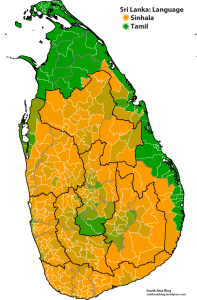The Comptroller and Auditor General (CAG) of India is a crucial constitutional authority responsible for auditing government finances. Established under Article 148 of the Indian Constitution, the CAG ensures transparency and accountability in the use of public funds. The office audits the accounts of the central and state governments, including autonomous bodies and institutions funded by the government.
Article 149 of the Indian Constitution specifies the duties and powers of the Comptroller and Auditor General (CAG) of India. As mentioned under the article:
- The CAG is responsible for auditing all receipts and expenditure of the Government of India and the Government of each State.
- The CAG also audits the accounts of any other authority or body as prescribed by law.
- Parliament can determine the duties and powers of the CAG through legislation.
The CAG’s reports are vital for legislative control over public expenditure, ensuring that government spending is lawful, efficient, and effective. The appointment and independence of the CAG are safeguarded by the Constitution, ensuring impartiality in its operations.
Dr. B.R. Ambedkar on the floor of constituent assembly argued that the CAG’s office is the most important constitutional office as it is a guardian of public purse. In his own words,
“I am of opinion that this dignitary or officer is probably the most important officer in the Constitution of India. He is the one man who is going to see that the expenses voted by Parliament are not exceeded, or varied from what has been laid down by Parliament in what is called the Appropriation Act. If this functionary is to carry out the duties-and his duties, I submit, are far more important than the duties even of the Judiciary- he should have been certainly as independent as the Judiciary. But, comparing the articles about the Supreme Court and the articles relating to the Auditor-General, I cannot help saying that we have not giving him the same independence which we have given to the Judiciary, although I personally, feel that he ought to have far greater independence than the Judiciary itself.” – Dr. B R Ambedkar
1. Issues Related to the Appointment Procedure of CAG
Under Art 148 -151 the CAG is appointed by the president on the advice of Prime Minister and his Council of Ministers. The CAG’s appointment is in the hands of the executive without any role for legislature in the process. Given that the CAG’s findings may often be critical of government policies, government may appoint a more pliable individual or an individual with a conflict of interest. e.g. Shashikant Sharma’s appointment as the CAG in 2013 was questioned on the ground of his past tenure in the defense ministry where he supervised defense procurements. This could have easily led to the CAG going soft on the audit of defense procurements under his watch.
Way forward.
The 2nd ARC report has argued about the need to establish a bipartisan multimembered body for appointing CAG with a role for the opposition. e.g. A committee composed of the prime minister and leader of opposition and the law minister, acting as the head in the selection process.
Amitabh Mukhopadhyaya, in his article ‘Foregrounding Financial Accountability in Governance’ argues that Public Account Committee (PAC) must also be consulted while appointing the CAG.
2. Scope of CAG Audits
Currently the CAG performs compliance audits, financial audits and performance audits.
- Compliance audits conducted by the CAG aim to ensure that government departments and agencies follow the relevant laws, regulations, and policies. These audits scrutinize whether the financial and administrative actions adhere to the established rules and procedures.
- Financial audits by the CAG focus on examining the accounts and financial records of government entities to assess their accuracy and fairness. The goal is to provide an opinion on whether the financial statements present a true and fair view of the financial position.
- Performance audits evaluate the economy, efficiency, and effectiveness of government programs and operations. The CAG conducts these audits to determine if government resources are being used optimally and if the desired outcomes are being achieved.
Historically the Supreme Auditing Institutions (SAI) across developing world have focused more on ‘low key’ functions of compliance and financial audits. Whereas in developed countries, which are mature democracies, SAI have devoted more than two third of their time and resources on performance audits.
The current challenge before the CAG is to handle the criticism of its performance audits, especially when findings are critical of government policies. e.g. During the UPA-2’s regime, the CAGs report on 2G spectrum allocation and Coal Block allocation were critical of government policy having caused a huge revenue loss to the state and unduly benefiting the private players.
The other challenge before the CAG is over its potential scope to audit the private companies which provide services under a PPP model on behalf of the state or are in a revenue sharing agreement with the government. The supreme court in the Association of Unified Telecom Services vs Union of India case, 2014 clarified the CAG’s jurisdiction over private companies in such cases is only when directed by the government e.g. The AAP government in 2014 requested the CAG to audit the accounts of private DISCOMs responsible for electricity distribution in Delhi on the charge of a potential discrepancy in reporting profits and operational losses. The 2016 draft report of CAG has pointed out a potential under reporting of profits by these private companies of up to 8,000 crores.
3. Quality of Audits
The quality of CAG reports had often been questioned specially when they criticize government policy. The CAG submitted itself to a peer-to-peer assessment conducted by INTOSAI (Int. organization of Supreme Auditing Institutions) in 2012. The peer review focused on the Audit Quality Management Framework (AQMF) and performance audit function of CAG, examining 35 performance audits from FY 2010-2011.
The recommendations of this peer review included:
- Communication AQMF to staff for better understanding and compliance.
- Review and update audit standards and guidelines to match current practices and global standards.
- Strengthen training programs to develop staff skills in performance auditing.
- Develop clear audit objectives, criteria, and test programs that are achievable.
- Implement a formal policy to manage conflicts of interest more effectively.
- Seek and publish responses from audited entities for transparency.
- Include third parties in audits to ensure fairness and thoroughness.
- Strengthen techniques and documentation for better evidence validation.
- Enhance audit reports’ quality and clarity.
- Introduce annual reviews and share lessons learned for continuous improvement.
Despite these shortcomings the INTOSAI have found these CAG reports to be an invaluable and authoritative reliable source of information to discharge their duties. The Public Accounts Committee has recommended more regular peer-to-peer assessments (once in 3 years) to monitor whether quality of CAG reports have improved over time or not.
4. The Delay in Tabling of Reports
The Delay in Tabling of CAG reports and Public Accounts Committee (PAC’s) findings on government policies and their impact has often been intentionally done by ruling governments as this could be a major embarrassment for them. However, it deprives the legislature and the public of a quality source of evidence to hold the executive accountable.
2nd ARC and the PAC have repeatedly argued about the need for a time bound procedure for tabling CAG reports and PAC findings preferably within a year before the parliament.














Rethinking public institutions in India is a booke written by Pratap Bhanu Mehta, Milan Vaishnav and others… Not by Amitabh mukhopadhyay
Actually in the book, the article is written by Amitabh Mukhopadhyay… but the book does not mention his name as author on the cover page.
In light of this, we’ve added article name instead of book name. That will be more appropriate.
Thank you for pointing it out.